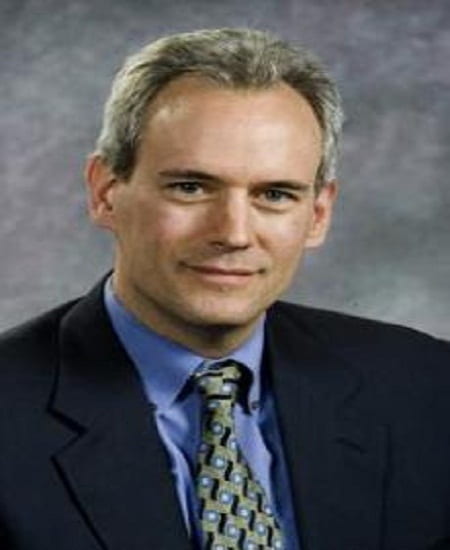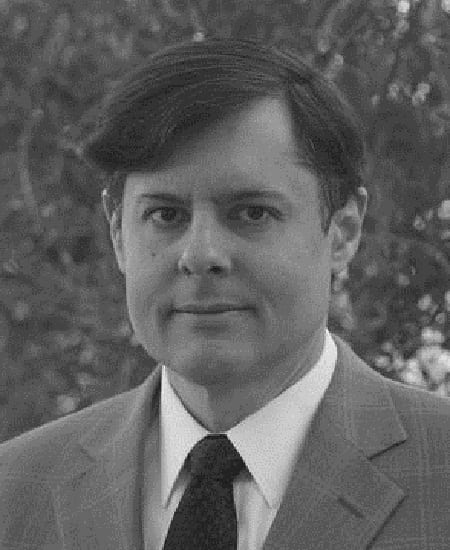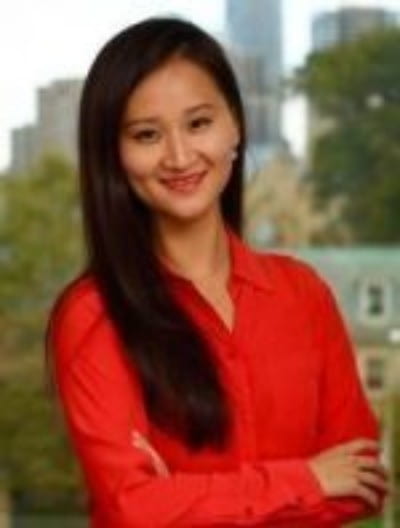Audio Recording Part 1
Audio Recording Part 2
Audio Recording Part 3
Tuesday, April 17, 2018
12:30 PM – 1:45 PM
The Elliott School of International Affairs
1957 E Street, NW, Room 505
Washington, DC 20052
China’s leaders have called for the country to help lead Asia’s economic integration and reshape its approach to security. China’s vision in some ways contrasts with the preferences of the United States and its allies. How does China intend to realize its vision and what does this mean for the United States and the region?
This event is on the record and open to the media.
About the speaker:
 Timothy R. Heath is a senior international defense researcher at the RAND Corporation. Prior to joining RAND in October 2014, he served as the senior analyst for the USPACOM China Strategic Focus Group for five years. He worked for more than 16 years on the strategic, operational, and tactical levels in the U.S. military and government, specializing on China, Asia, and security topics.
Timothy R. Heath is a senior international defense researcher at the RAND Corporation. Prior to joining RAND in October 2014, he served as the senior analyst for the USPACOM China Strategic Focus Group for five years. He worked for more than 16 years on the strategic, operational, and tactical levels in the U.S. military and government, specializing on China, Asia, and security topics.
Heath has published numerous articles and one book. Fluent in Mandarin Chinese, he has extensive experience analyzing China’s national strategy, politics, ideology, and military, as well as of Asian regional security developments. He earned an M.A. in Asian studies from George Washington University and a B.A. in philosophy from the College of William and Mary. He is currently pursuing a Ph.D. in Political Science from George Mason University.
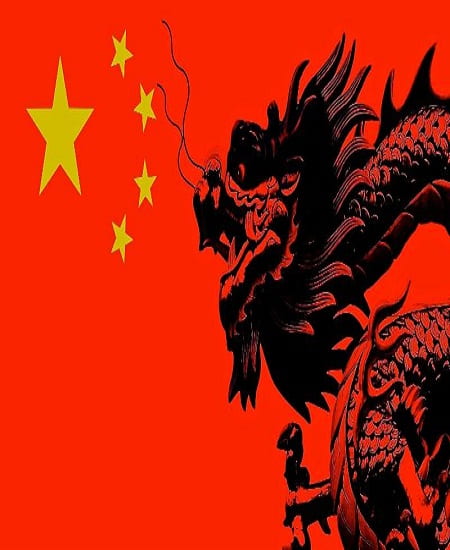
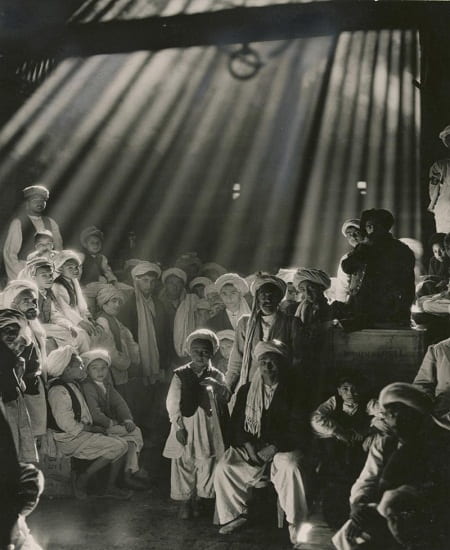
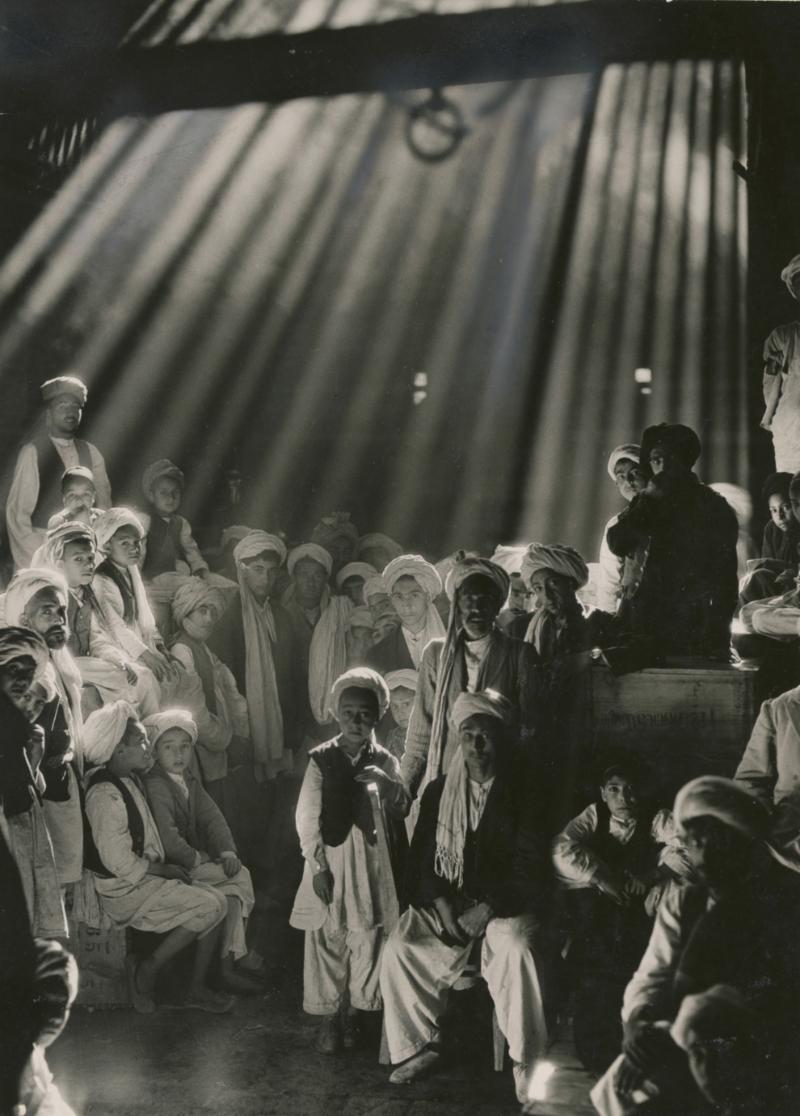
 Maeve Nolan is a second year PhD Art History and Archeology student at the School of Oriental and African Studies, University of London. She is currently a visiting scholar with George Washington University’s Sigur Center whilst she conducts her research at the National Geographic Society. The title of her PhD is:
Maeve Nolan is a second year PhD Art History and Archeology student at the School of Oriental and African Studies, University of London. She is currently a visiting scholar with George Washington University’s Sigur Center whilst she conducts her research at the National Geographic Society. The title of her PhD is: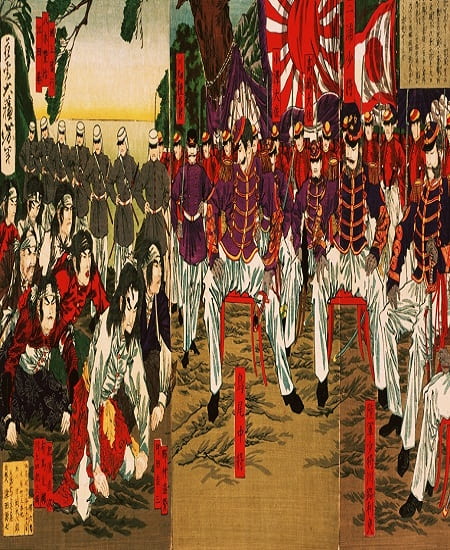
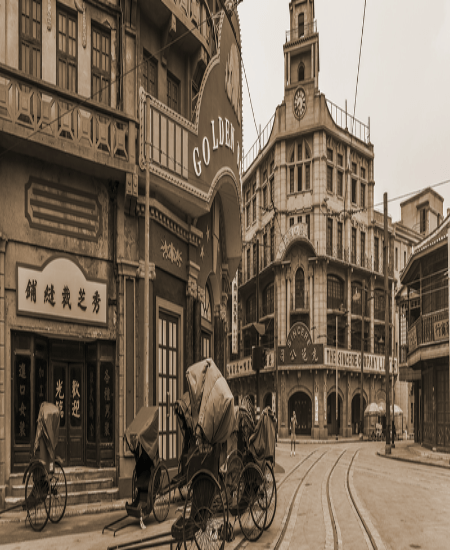
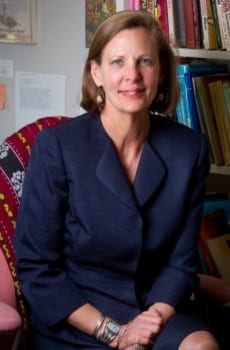
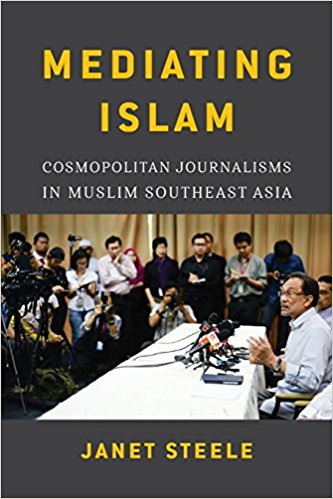
 Dr. Janet Steele is an associate professor of journalism at the George Washington University and the director of the Institute for Public Diplomacy and Global Communication. She received her Ph.D. in History from the Johns Hopkins University and focus on how culture is communicated through the mass media.
Dr. Janet Steele is an associate professor of journalism at the George Washington University and the director of the Institute for Public Diplomacy and Global Communication. She received her Ph.D. in History from the Johns Hopkins University and focus on how culture is communicated through the mass media.
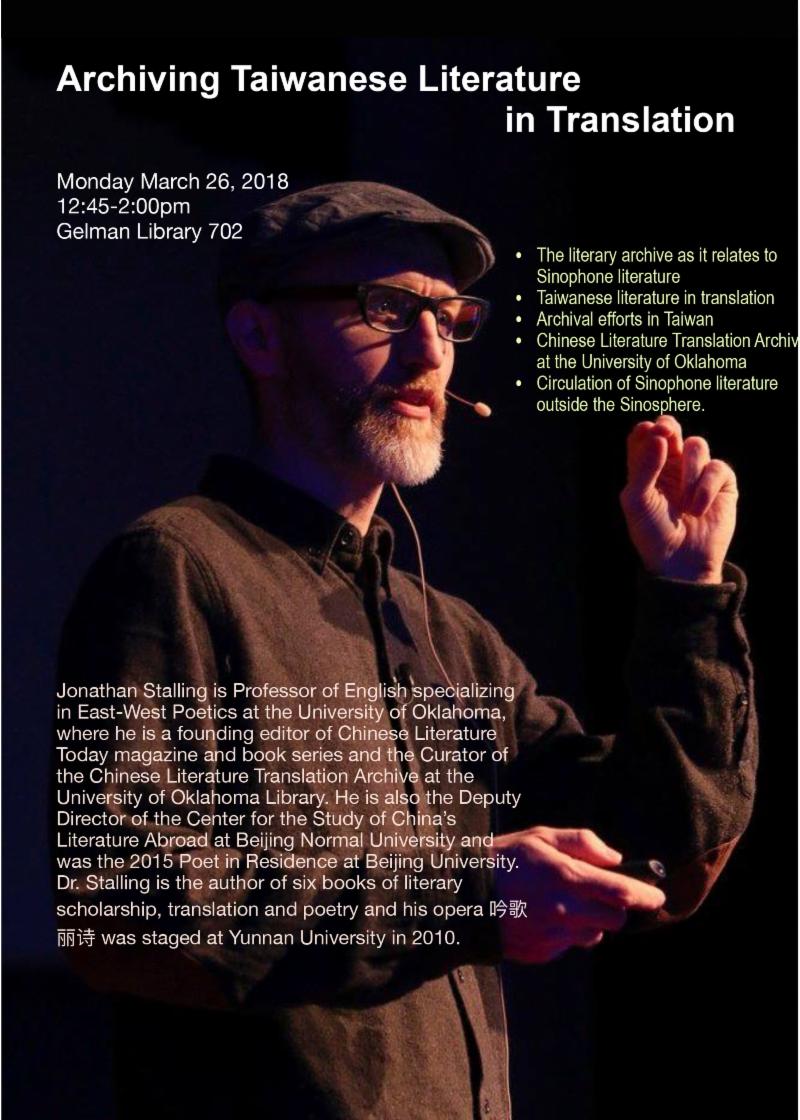
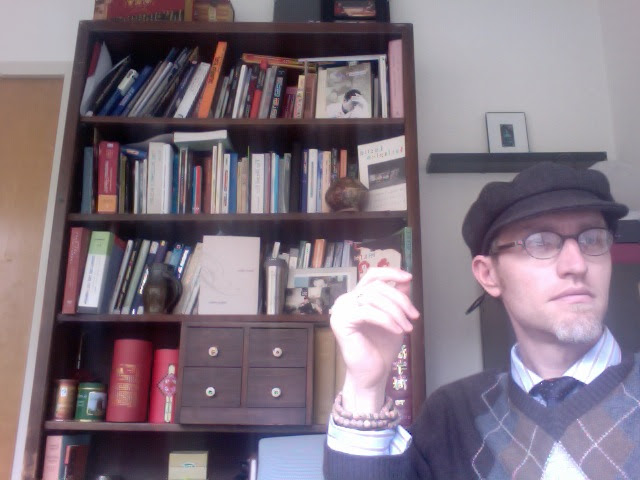 Dr. Jonathan Stalling is Professor of English specializing in East-West Poetics at the University of Oklahoma, where he is a founding editor of Chinese Literature Today magazine and book series and the Curator of the Chinese Literature Translation Archive at the University of Oklahoma Library. He is also the Deputy Director of the Center for the Study of China’s Literature Abroad at Beijing Normal University and was the 2015 Poet in Residence at Beijing University. Dr. Stalling is the author of six books of literary scholarship, translation and poetry and his opera 吟歌 丽诗 was staged at Yunnan University in 2010.
Dr. Jonathan Stalling is Professor of English specializing in East-West Poetics at the University of Oklahoma, where he is a founding editor of Chinese Literature Today magazine and book series and the Curator of the Chinese Literature Translation Archive at the University of Oklahoma Library. He is also the Deputy Director of the Center for the Study of China’s Literature Abroad at Beijing Normal University and was the 2015 Poet in Residence at Beijing University. Dr. Stalling is the author of six books of literary scholarship, translation and poetry and his opera 吟歌 丽诗 was staged at Yunnan University in 2010.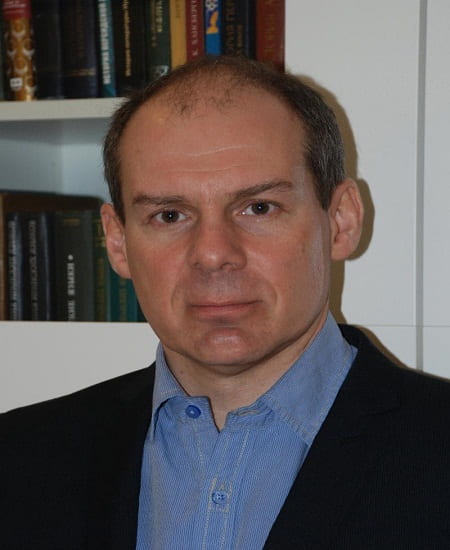

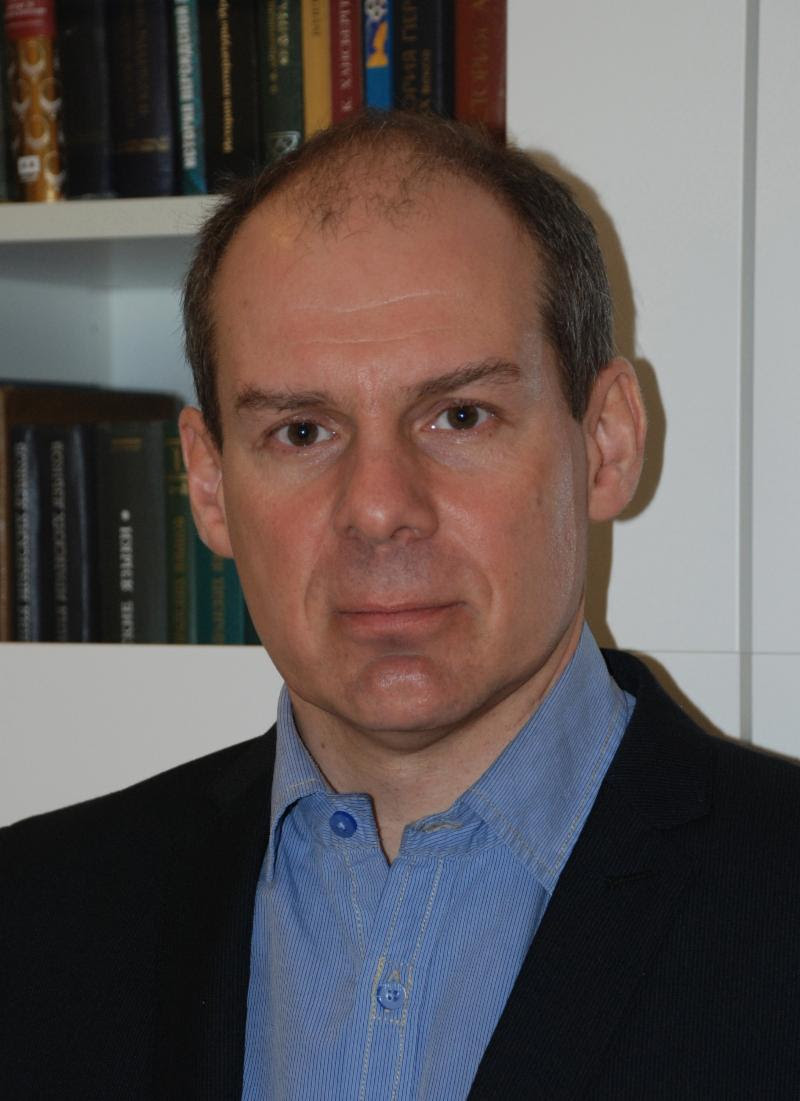 Dr. Mikhail Pelevin is Professor of Iranian Philology at St. Petersburg State University (Russian Federation). His main area of research is the early modern Pashto literature conceptualized as the most distinct and expressive element of social culture and ethnic self-identification of Pashtuns in the transition period from the late Middle Ages to modern times. Among his publications in Russian are books Khushhal Khan Khatak (1613-1689): the Beginning of the Afghan National Poetry (2001), Afghan Poetry in the First Half and the Middle of the Seventeenth century (2005), Afghan Literature of the Late Middle Ages (2010); a new book The Khattaks’ Chronicle: the Corpus and Functions of the Text is coming soon. Few recent articles are available in English, e.g.: “The Beginnings of Pashto Narrative Prose” (2017), “Persian Letters of a Pashtun Tribal Ruler on Judicial Settlement of a Political Conflict”, 1724 (2017), Daily Arithmetic of Pashtun Tribal Rulers: Numbers in The Khataks’ Chronicle (2016), “Ethnic consciousness of Pashtun Tribal Rulers in Pre-modern Times” (2015). M. Pelevin teaches courses on Persian, Pashto, the history of Persian and Pashto literatures. His other academic interests include Iranian dialectology and Muslim law.
Dr. Mikhail Pelevin is Professor of Iranian Philology at St. Petersburg State University (Russian Federation). His main area of research is the early modern Pashto literature conceptualized as the most distinct and expressive element of social culture and ethnic self-identification of Pashtuns in the transition period from the late Middle Ages to modern times. Among his publications in Russian are books Khushhal Khan Khatak (1613-1689): the Beginning of the Afghan National Poetry (2001), Afghan Poetry in the First Half and the Middle of the Seventeenth century (2005), Afghan Literature of the Late Middle Ages (2010); a new book The Khattaks’ Chronicle: the Corpus and Functions of the Text is coming soon. Few recent articles are available in English, e.g.: “The Beginnings of Pashto Narrative Prose” (2017), “Persian Letters of a Pashtun Tribal Ruler on Judicial Settlement of a Political Conflict”, 1724 (2017), Daily Arithmetic of Pashtun Tribal Rulers: Numbers in The Khataks’ Chronicle (2016), “Ethnic consciousness of Pashtun Tribal Rulers in Pre-modern Times” (2015). M. Pelevin teaches courses on Persian, Pashto, the history of Persian and Pashto literatures. His other academic interests include Iranian dialectology and Muslim law.